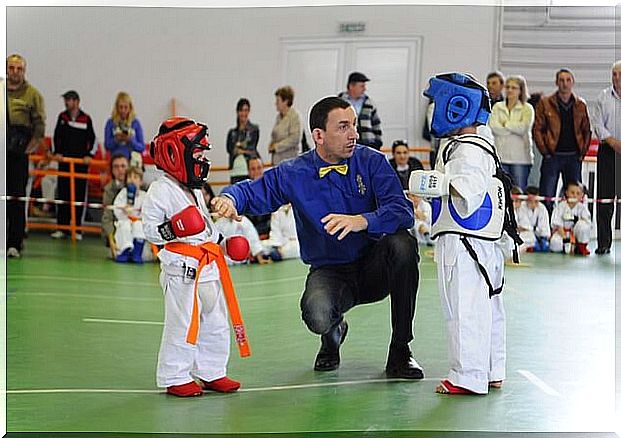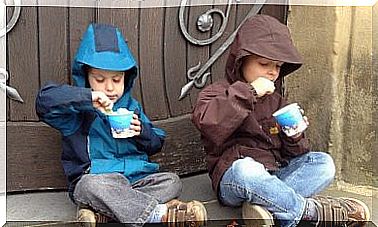What Activities Help Your Child Control Emotions?

Most children learn self-control skills between the ages of 2 and 5, but sometimes older children continue to struggle with impulsivity. Recognizing their feelings and having moments of relaxation and concentration are activities that help your child control emotions.
One of the keys to developing impulse control is recognizing the difference between feelings and actions, advises an article based on advice taken from the Education.com page.
In that same article it is noted that young children often have trouble regulating their emotions, and feelings lead to negative behaviors before they can be thought about.
Therefore, it is convenient that you help your child learn to identify his feelings of anger or frustration by classifying them for him. Precisely, Scholastic.com recommends validating your child’s feelings and then modeling a more appropriate way of expressing them.
For example, “Don’t hit mom. Hitting hurts. I see that you are angry, but you cannot respond in this way. This lets you know that it’s okay to have those feelings, but you can’t always act on them in an aggressive way.

Activities to control emotions
Exercising and moving increases dopamine, norepinephrine and serotonin levels in the brain, according to Scholastic.com. These hormones can help improve focus and attention, as well as concentration, while reducing hyperactivity and impulsivity.
For its part, Education.com lists inhibitory action, or the possibility of waiting for something to start, as an essential skill in learning self-control. Playing some active games with your child can help him learn about impulse control while having fun.
Games like the red light, green light, or Simon Says encourage you to listen carefully, follow directions, and control your body, stopping your movements at a certain point.
Another game that practices these skills is a “frozen dance” game: you can play music and ask it to dance around the room, but as soon as the music stops, it has to freeze (stay put).
A child’s executive functioning skills are their ability to think, plan, problem solve and perform tasks, according to Scholastic.com. Helping your child develop executive functioning skills can help him stop acting reactively and start thinking about his actions some more, the article reviews.
One way to do this is to play memory games. Short-term memory is linked to improved impulse control, as the cognitive load on the frontal cortex lights up making it better able to handle impulsivity.
Practicing martial arts, gymnastics, meditation, yoga or swimming can also be activities that help your child to control their emotions, since they teach them to breathe correctly and to concentrate.
Older elementary school children are also capable of setting and working toward goals. Helping your child do this will improve his executive functioning and building self-control.

Regulation of emotions
Emotional self-regulation, which begins at about 4 years of age, is one of the most complex evolutionary tasks that we all face during our maturational development, with greater or lesser success.
Psychologist Mark Greenberg has shown through research with children for more than 30 years that when they are taught calming skills, they are taught how to identify their feelings and how to speak appropriately about them, their abilities naturally improve. to relate to others and also, their academic skills.
Other great scholars such as Antonio Damasio, argue that emotion affects strictly cognitive functions such as perception, memory and attention. Thus, something fundamental is demonstrated, that emotion and cognition are not independent processes but are closely related.
Therefore, your child will be much smarter and better adapted if he knows his emotions and knows how to handle them constructively.
When a child learns to identify their feelings and accept them, it will positively affect their psychological security and self-esteem. He will feel something very, very valuable, that he is the “owner of his feelings.”
To do this, to be able to help you in this process, it is we adults who are responsible for offering them constructive help and who are confronted with our limitations in this difficult task.
We will not do it properly if we do not start by accepting our intense negative emotions that cause tension and also learn to handle them without rejecting them.









